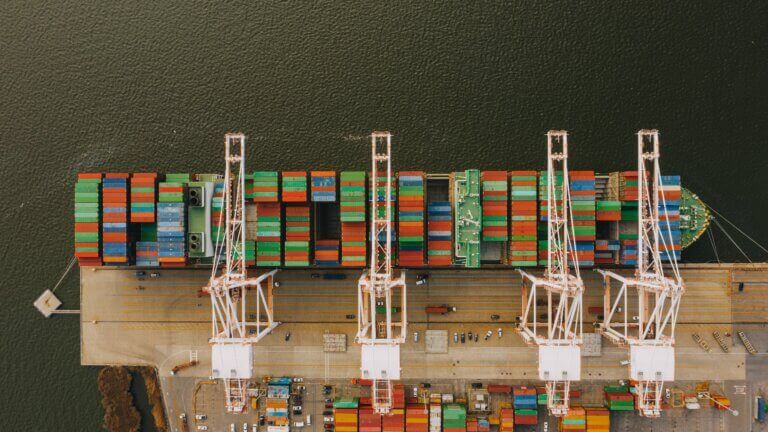Blog

Important changes in Costa Rica’s electronic receipt regulations have been introduced by the tax authority through the new mandate 44739-H. This new regulation, published on November 8, aims to modernize processes and ensure accuracy in electronic transactions across the country by introducing significant changes in the management of electronic receipts for tax purposes. Main Changes […]

The Chilean Internal Revenue Service (SII) recently published version 4.00 of the document describing the format of electronic tickets for Sales and Services. The electronic ticket (or Boleta Electrónica) is an electronic receipt issued for the sale of goods or services to individuals, consumers or end users. The document includes basic information about the transaction, […]

Argentina has recently expanded its perception VAT (Value Added Tax) collection regime to ensure efficient tax administration. It has included selling food and other products for human consumption, beverages, personal hygiene, and cleaning items under its scope. The Argentinian Federal Administration of Public Revenue (AFIP) established this through Resolution No. 5329/2023 in early February 2023. […]

With the entry into force of resolutions SAT-DSI-1240-2021 and SAT-DSI-1350-2022, most taxpayers in the country are now obliged to issue electronic invoices under the Online Electronic Invoice System (Regimen de Factura Electronica en Linea – FEL). The latest taxpayers to join the mandatory electronic billing system are include taxpayers incorporated into the General Value Added […]

Invoicing in Chile is changing on 1 December 2022. This is when resolution 66 from the Chile Internal Revenue Service comes into force. This new regulation concerns organisations with foreign currency operations. Banks, stockbrokers, exchange houses and financial institutions are affected. Other intermediaries or entities that carry out foreign currency purchase and sale operations themselves […]

Update: 05 January 2023 by Andres Landerretche More taxpayers join the Electronic Invoicing System of Paraguay (SIFEN) Since Paraguay started implementing its National Integrated System of Electronic Invoicing (SIFEN) plan in 2017, the Undersecretary of State for Taxation of Paraguay (SET) has carried out the process. The different phases are: Pilot plan Voluntary phase Mandatory […]

The number of continuous transaction controls (CTC) jurisdictions worldwide is increasing at a high speed. What’s equally interesting to note is a parallel development: countries that already have CTCs in place are expanding the scope of their CTC regimes by introducing new obligations around related document types, notably for transport documents. We are witnessing a […]

On 1 May 2021, the Mexican tax administration (SAT) enacted a new requirement via the new Bill of Lading Supplement (locally known as Complemento de Carta Porte), making it mandatory for taxpayers moving goods between addresses within the country to inform and receive authorisation from the SAT. This Complemento is required whenever taxpayers move goods within Mexico via […]

In the “Statement on a Two-Pillar Solution to Address the Tax Challenges Arising From the Digitalization of the Economy” issued on 1 July 2021, members of the G20 Inclusive Framework on Base Erosion and Profit Shifting (“BEPS”) have agreed upon a framework to move forward with a global tax reform deal. This will address the […]

Moving goods from one place to another is a quintessential part of business. Manufacturers, wholesalers, transporters, retailers and consumers all need to carefully orchestrate the shipping and handling of raw materials, parts, equipment, finished goods and other products to keep business flowing. This supply chain harmony is what makes production and trade possible in society. […]

While many Latin American countries have begun to implement taxation on digital services, Mexico is currently leading the charge and has established a strong track record that other countries are hoping to match. Chile and Ecuador have both recently passed similar legislation with hopes of finding similar success and attracting more global fintech brands. The […]

Earlier today, Sovos announced the acquisition of Ecuador-based Stupendo, which provides automated e-invoicing services and processes that are regulated by the Internal Revenue Service (SRI) of Ecuador. While this news should be of particular interest to businesses headquartered or doing business in Ecuador, it also re-emphasizes something important to all our customers about the way […]

This blog was updated on December 12, 2023 Sovos recently sponsored a benchmark report with SAP Insider to better understand how SAP customers are adapting their strategies and technology investments to evolve their finance and accounting organizations by utilizing SAP S/4HANA Finance. This blog hits on some of the key points covered in the report […]

Update: 25 October 2023 by Maria del Carmen Mexico releases Carta Porte Version 3.0 On 25 September 2023, the Tax Authority in Mexico (SAT) published Version 3.0 of the Carta Porte Supplement on its portal with some adjustments. The use of Version 2.0 of the Carta Porte became mandatory as of 1 January 2022 in […]

To understand why there is an ongoing evolution in the managing and administration of value added taxes (VAT), it is important to first understand the motivations of the governments behind the changes. The primary responsibility of any tax authority is to collect the revenue in which the government is legally owed. The difference between what […]

In Part I of our series on the VAT Evolution, we explored the motivations of tax authorities and governments around the world to embrace digitization and technology of a method of increasing revenue collection and shrinking tax gaps. More information on this topic can also be found by downloading your free copy of our IDC […]

